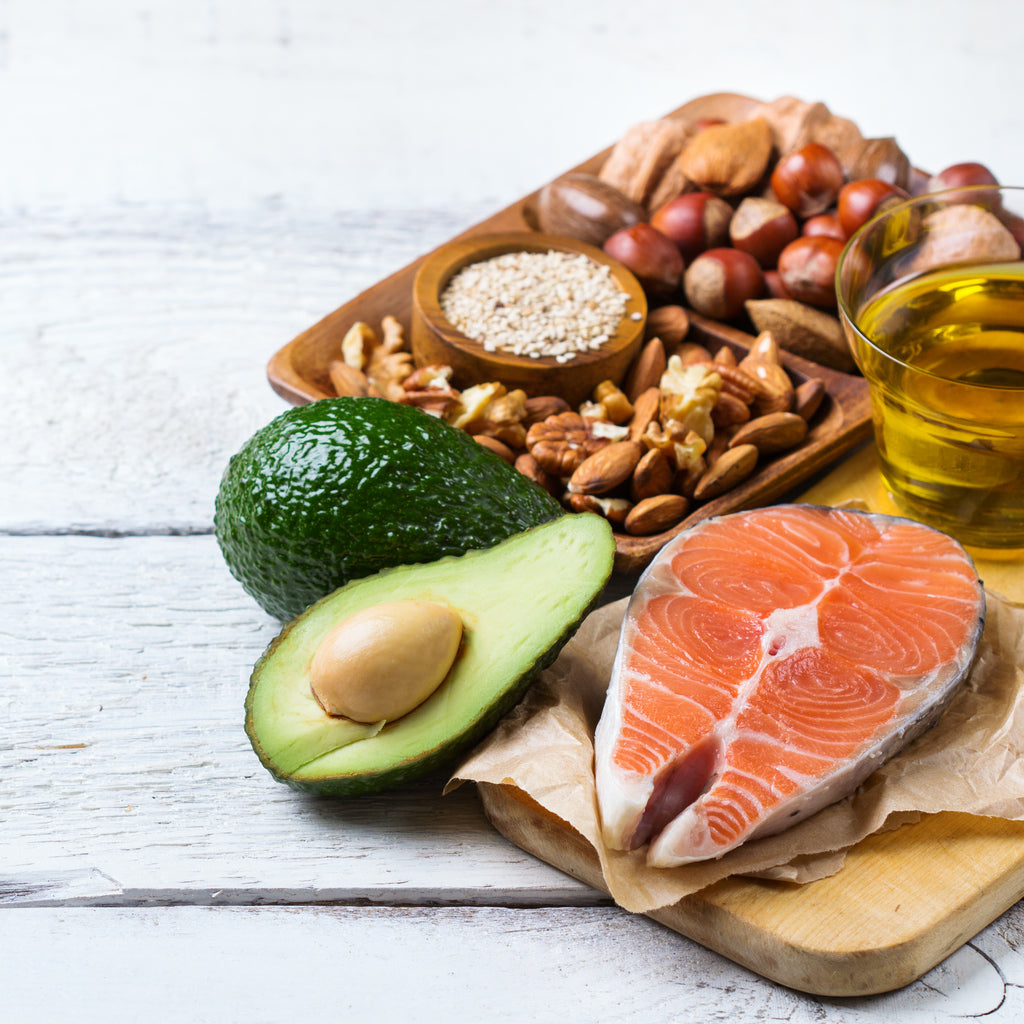Can certain fats really help to improve your heart and brain function?

Unfortunately, for many people, the word "fat" carries extremely negative connotations. Whether thinking about fats in the diet or fatty tissue on your body, most people would think to avoid fat, at all costs.
But the truth is that certain types of fats are not only desirable but necessary to sustain great health.
For example, two of the most critical "healthy fats" are a pair of omega-3 fatty acids known as EPA and DHA. The full names - eicosapentaenoic acid and docosahexaenoic acid - are admittedly challenging to pronounce and spell.
Fortunately, they are commonly abbreviated. But despite their technical-sounding names, these polyunsaturated fats are simply natural - and beneficial - nutrients found in certain types of fish (as well as in fish oil). You may be surprised by what these "good fats" can do for your heart and brain function.
In addition to healthy fats, there are many wonderful substances designed to support your memory, mood and mental focus including: bacopa, citicoline, velvet bean and aronia berry.
Promote heart health with EPA and DHA
DHA and EPA are believed to work together to decrease levels of pro-inflammatory proteins and undesirable fats in the body - and the heart is a primary beneficiary of this biochemical "buddy act." These fatty acids are also thought to support healthy blood pressure and reduce the "stickiness" of blood platelets, making them less likely to clump together in harmful clots and reducing the risk of stroke and heart attack.
While these omega-3s are typically taken and studied in combination, some research showed that DHA works better than EPA for specific tasks. For example, in a study published in the American Journal of Clinical Nutrition, researchers compared EPA head-to-head with DHA and found that DHA was more effective in reducing inflammatory markers and improving cholesterol levels.
In any case - eating EPA- and DHA-rich cold-water fatty fish is an excellent way to support the health of your heart and keep it functioning smoothly. While you're at it, you'll be consuming high-quality protein and "topping up" on essential nutrients such as calcium, phosphorus, vitamin D, and riboflavin.
EPA and DHA may promote mental clarity and help protect against depression
DHA is an important component of cell membranes - which play a vital role in cell signaling. Both EPA and DHA increase blood flow to the brain and promote the release of serotonin, a neurotransmitter important for a stable mood.
In light of these facts, it's not surprising that getting enough DHA and EPA is linked with a reduced risk of depression. And that's not all. In a review of studies published in the Alternative Medicine Review, the authors reported that these neuroprotective omega-3s could also benefit ADHD, autism, mild cognitive impairment, and bipolar disorder.
Finally, a recent study conducted by researchers at Tufts Medical Center in Boston and published in the American Journal of Clinical Nutrition showed that supplementation with EPA and DHA improved cognitive function, processing speed, verbal fluency, and memory in older adults with coronary artery disease (a type of heart disease that raises the risk of cognitive decline).
Fight inflammation and joint pain with omega-3s
EPA and DHA can reduce the inflammation believed to lie at the root of many chronic degenerative conditions, including heart disease, type 2 diabetes, rheumatoid arthritis, and cancer. Increasing DHA intake can help regulate the all-important balance between inflammatory omega-6 fats - found in sunflower, corn, soy, and canola oils - and anti-inflammatory omega-3 fats. This can pay off in reduced joint pain and swelling.
For example, in one ten-week study published in Clinical Nutrition, 2100 mg a day of DHA significantly decreased swollen joints in participants with rheumatoid arthritis. Athletes and workout enthusiasts take note: These anti-inflammatory effects may also allow EPA and DHA to help speed recovery and reduce pain, inflammation, and stiffness after vigorous exercise. It turns out that a meal featuring EPA- and DHA-rich fish might be the ideal post-workout fare.
Increase dietary intake of omega-3s with cold-water fatty fish
The best dietary EPA and DHA sources are fatty fish such as wild-caught salmon, sardines, anchovies and lake trout. These watery origins explain why EPA and DHA are sometimes referred to as the "marine omega-3s".
While there are currently no official daily recommended intakes for EPA and DHA, the American Heart Association advises eating 8 ounces of cold-water fatty fish (approximately two servings) each week - which should yield around 250 mg to 500 mg of EPA and DHA a day.
However, nutritional expert Ashley Jordan Ferira, Ph.D., RDN, notes that over 90 percent of all Americans don't meet this minimum amount and calls for a "meaningful daily source of these marine omega-3s." Your holistic healthcare provider may recommend supplementing with a high-quality fish oil formulation to ensure healthy levels.
Typically advised amounts range from 1,000 to 2,000 mg daily of combined EPA and DHA, but check with your provider before supplementing.
Better heart health, clearer thinking, improved mood, and reduced inflammation are the potential benefits of the "marine omega-3s."
As a final note, we should say that omega-3s are not the only thing necessary for healthy heart and brain function. Eat organic food, as much as possible, to avoid the toxins found in non-organic food. Plus, don't forget the value of regular exercise and meditation to help manage your stress levels. And, finally, seek the support of high quality nutritional supplements to correct any deficiencies that may exist.
Editor's note: For advanced brain support, discover the health benefits of Advanced Brain Support, from LuvByNature.
Sources for this article include:






